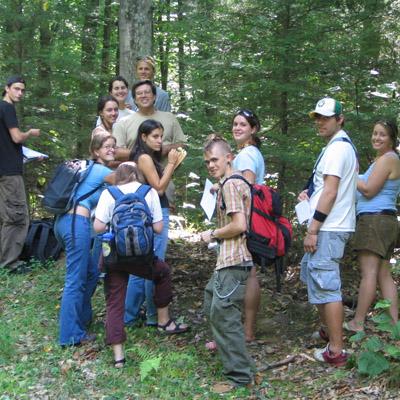Sustainable Forestry Solutions

The practice of sustainable forestry is an essential part of managing the Northern Forest for the diverse products, services, and other resources expected of the landscape. The critical skills, concepts, and experience necessary to practice sustainable forestry have not yet been clearly defined. College forestry programs have historically focused on measurement, growth, and extraction of timber. As knowledge and concerns about forested ecosystems have broadened, the demands placed on forests and forestry education have grown to include: wildlife habitat; genetic conservation; soil, water, and air quality; aesthetics and ethics; and human socioeconomic well-being.
The University of Vermont and Paul Smith’s College are reorienting their forestry curricula to address the challenges of educating the next generation of professionals who will manage the Northern Forest. These efforts, as well as those of other institutions, can be aided by regional- and national-level dialogue regarding the elements of sustainable forestry and the skills and knowledge needed to implement it.
NSRC researchers organized the Sustainable Forestry Forum, two days of panels and working groups that grappled with these issues in March 2003. Over 70 practitioners, educators, and students shared their views and wisdom. They concluded that communication, critical thinking, and collaboration are as important as technical skills and knowledge of the sciences. Educators offered the following ideas for delivering a forestry education: basing course work on all parts of the forest, including its social context; integrating studies on a particular parcel of land, such as a school forest; encouraging early work experience through internships and summer jobs; and giving non-forestry majors exposure to forestry.
Download printable version [PDF]
Download full final report [PDF]
